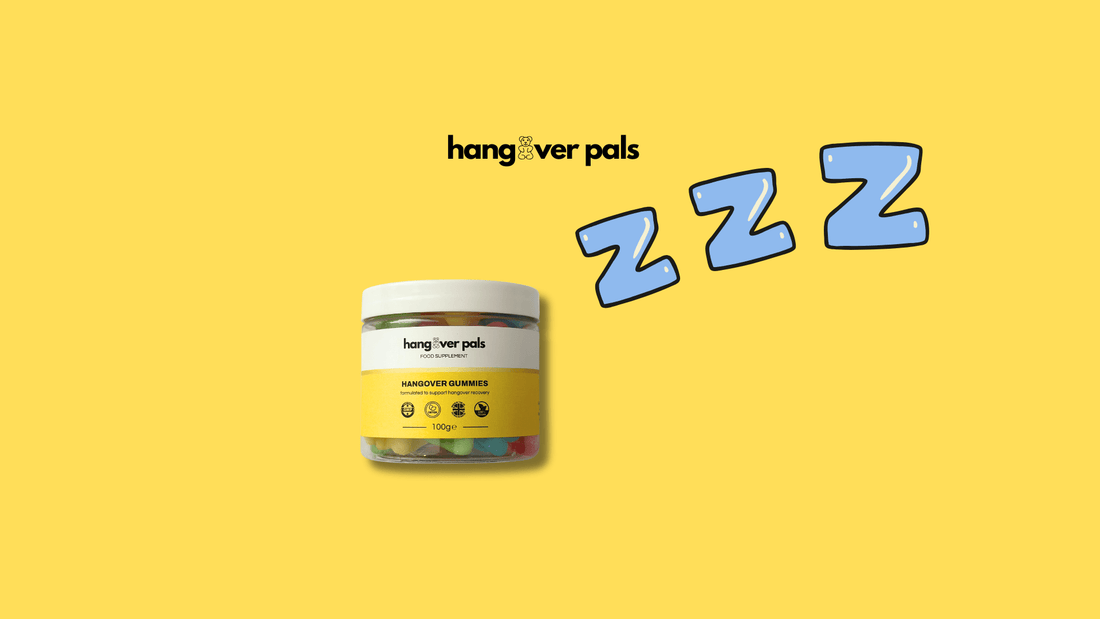
Biohacking Sleep for Better Health: 10 Science-Backed Hacks You Can Try
Share
What is Sleep Biohacking?
Sleep biohacking is the practice of using science, technology, and lifestyle adjustments to improve both the quality and quantity of your sleep. Unlike general sleep tips (“get eight hours”), biohacking digs deeper into how your body works, circadian rhythms, hormones, brain chemistry and applies targeted strategies to optimize them.
The goal isn’t just more sleep, but better sleep: deeper rest, improved recovery, and waking up with sustained energy.
The Science Behind Quality Sleep
Sleep isn’t one uniform state. Instead, it cycles through stages:
-
Light Sleep (Stage 1 & 2): Transition into rest, body temperature drops.
-
Deep Sleep (Stage 3): Physical restoration, tissue repair, and immune function strengthen.
-
REM Sleep (Stage 4): Brain activity spikes, supporting learning, memory, and emotional balance.
When alcohol, stress, or poor routines disrupt these stages, you wake up groggy instead of refreshed.
How Poor Sleep Harms Your Health
Chronic poor sleep impacts nearly every system in your body:
-
Physical Health: Weakened immunity, weight gain, higher risk of diabetes and heart disease.
-
Mental Health: Increased anxiety, brain fog, irritability, and reduced focus.
-
Long-Term Risks: Alzheimer’s, depression, chronic inflammation, and even reduced lifespan.
That’s why biohacking sleep for better health isn’t a luxury, it’s a cornerstone of overall wellbeing.
10 Biohacking Techniques to Improve Sleep
1. Light Management (Blue Light Blocking & Sunlight Exposure)
-
Morning: Get 10–20 minutes of natural sunlight to reset your circadian rhythm.
-
Evening: Limit blue light exposure. Use blue-light blocking glasses or night mode on screens.
2. Sleep Environment Optimization
-
Keep your room cool (60–67°F / 15–19°C).
-
Block outside light with blackout curtains.
-
Use white noise machines or earplugs if noise is an issue.
-
Choose breathable bedding to regulate temperature.
3. Smart Supplements & Nutrients
-
Magnesium glycinate: Calms the nervous system.
-
Glycine: Lowers body temperature and improves sleep quality.
-
Melatonin (microdose): Helps realign circadian rhythm (especially for jet lag).
⚠️ Always consult a doctor before supplement use.
Bonus: How Hangover Pals Can Support Sleep Biohacking
While most people think of Hangover Pals as a recovery kit for the morning after, its carefully designed blend of vitamins and soothing extras also supports better sleep. Alcohol disrupts natural sleep cycles by dehydrating the body, depleting electrolytes, and spiking blood sugar - factors that prevent you from reaching deep sleep stages. Hangover Pals helps restore hydration and balance before bed, making it easier to fall asleep and stay asleep. Even if you haven’t been drinking, keeping a kit on hand can serve as a practical night time biohack, supporting hydration and relaxation at the end of a long day.
👉 You can buy Hangover Pals directly from their official website, making it simple to add to your sleep optimization toolkit.
4. Sleep Routine & Pre-Sleep Habits
-
Stick to a consistent sleep/wake time (even on weekends).
-
Create a wind-down ritual—reading, journaling, or stretching.
-
Avoid screens 90 minutes before bed for deeper sleep.
5. Breathing & Relaxation Techniques
-
Try the 4-7-8 method: inhale 4 sec, hold 7 sec, exhale 8 sec.
-
Meditation apps (Calm, Headspace) reduce racing thoughts.
-
Progressive muscle relaxation releases body tension.
6. Cold & Heat Exposure
-
Cold showers lower core body temperature, preparing you for sleep.
-
Warm baths or saunas before bed relax muscles and signal wind-down.
7. Wearables & Tracking
-
Devices like Oura Ring, Whoop, or Apple Watch track sleep cycles, HRV, and recovery.
-
Use data to find patterns—what helps vs. what hurts your sleep.
⚠️ Caution: Don’t obsess over metrics; aim for guidance, not perfection.
8. Diet & Timing
-
Avoid heavy meals within 3 hours of bed.
-
Cut caffeine by 2 PM (it lingers in your system 6–8 hours).
-
Balance blood sugar with protein and complex carbs at dinner.
9. Light Exercise / Movement
-
Intense workouts are best in the morning or afternoon.
-
Evening: stick to yoga, stretching, or a short walk. This lowers cortisol levels.
10. Mindset & Mental Wellness
-
Journal before bed to clear mental clutter.
-
Practice gratitude reflection to reduce stress.
-
Cognitive Behavioral Therapy for Insomnia (CBT-I) is a proven tool for chronic sleep issues.
Putting It All Together: Personalized Sleep Biohack Plan
Not every hack works for everyone. The key is to experiment systematically:
-
Pick 1–2 hacks at a time.
-
Track your results using a sleep diary or wearable.
-
Adjust based on energy, mood, and performance.
Within weeks, you’ll notice deeper rest, faster recovery, and sharper mornings.
FAQ: Biohacking Sleep for Better Health
1. Is sleep biohacking safe?
Yes—most methods are lifestyle-based and safe. Supplements should be doctor-approved.
2. How long before I see results?
Some hacks (blue light blocking) help instantly; others (routine changes) may take 2–4 weeks.
3. Do sleep trackers really help?
They provide insights, but listen to your body first. Don’t stress over “bad” data.
4. Can diet really affect sleep that much?
Yes—caffeine, alcohol, and sugar timing are huge factors.
5. Should I nap if I slept poorly?
Short naps (20–30 minutes) can help, but avoid late evening naps.
6. Is it possible to fully control sleep quality?
Not always—stress, hormones, and lifestyle play roles. But biohacking can improve it significantly.
Conclusion: Sleep Better, Live Better
Biohacking sleep for better health isn’t about gadgets or gimmicks—it’s about understanding your biology and making smarter choices. By fine-tuning light exposure, routines, diet, and environment, you can unlock deeper rest and better energy.
Sleep isn’t wasted time, it’s recovery time. Hack it wisely, and you’ll improve not only your nights, but every waking moment.
👉 For deeper insights, check the National Sleep Foundation’s guide on sleep health: sleepfoundation.org.
